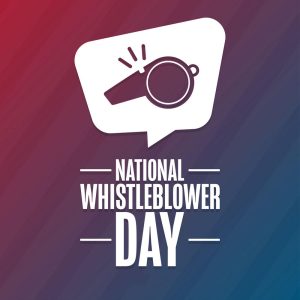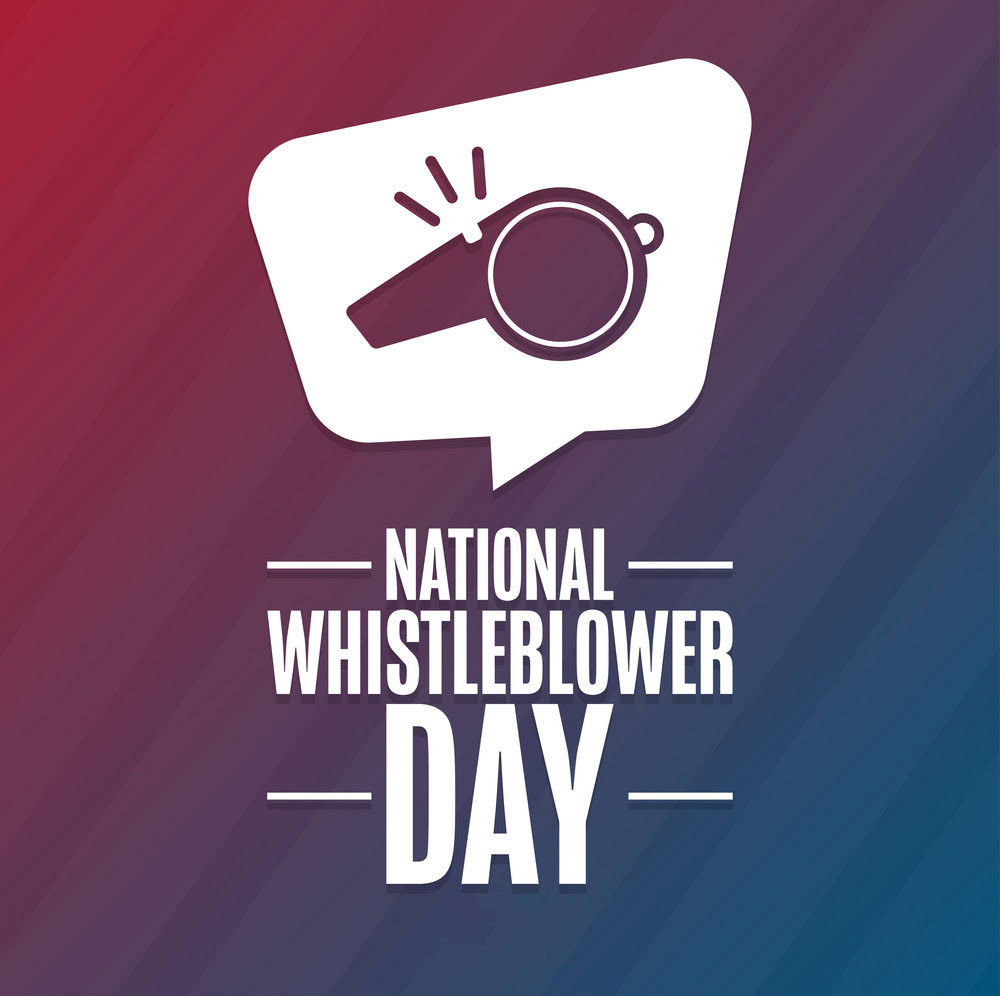The International Whistleblower Day is celebrated annually on June 23rd. This day is a reminder of the importance of reporting wrongdoing, misconduct and corruption. It is also a reminder of the imperative need to protect from retaliation those who blow the whistle. Whistleblowers contribute towards justice, transparency, fairness, equality. Should they be silenced, the society will suffer.
Whistleblowing is the act of lawfully reporting illegal, unethical, or improper behaviour within an organization, whether public or private.
It is a powerful tool that helps protect the public interest by exposing wrongdoing that could otherwise remain hidden. It protects justice, integrity and strengthens public trust. It promotes accountability and transparency ensuring that those in power are held accountable for their actions. It can prevent serious harm to the society, the economy, the environment, public health, people and public resources.
Whistleblowers face the risk of retaliation at work, for example dismissal, demotion, blacklisting in the industry, hostile work environment, social isolation from colleagues, threats or psychological pressure and legal risks of lawsuits etc.
Recognizing the importance of whistleblowing and the necessity to protect the whistleblowers, the EU published on 23 October 2019 the Directive (EU) 2019/1937 of the European Parliament and of the council on the protection of persons who report breaches of Union law.
For the purpose of harmonization with this Directive, Cyprus adopted the Protection of Persons who Report Breaches of Union and National Law (6(I)/2022)
In accordance with this law, legal entities in the public and private sector (subject to specific conditions) and more specifically,
- all legal entities of the public and/or wider public sector,
- legal entities of the private sector, employing 50 or more workers,
- legal entities of the private sector employing less than 50 workers, but which are active in specific sectors as referred to in the Law
shall establish channels and procedures for internal reporting, investigation and reporting back to the whistleblower.
In case the violation is not handled internally, or in case the whistleblower does not want to use the internal channel they are allowed by law to report directly to a competent authority (i.e. the Independent Anti-Corruption Authority). The use of internal and external mechanisms for submitting a report ensures that the identity of the whistleblower, as well as the person indicated in the report, remains confidential.
Under certain strict conditions, the law may protect a whistleblower who chooses to make a public disclosure by sharing information with the press, mass media, or social media. However, in case of a public disclosure, there is a risk that if it turns out that the information is inaccurate or false, the whistleblower may be involved in legal proceedings by the accused.
‘Whistleblower’s important role in safeguarding the public good is repeatedly proved by the scandals they uncover, such as industry-scale tax avoidance (LuxLeaks and Panama Papers), and money laundering (Danske Bank scandal). However, many more cases of wrongdoing could have been prevented if more people had come forward to expose problems….’. (source: Transparency International)
It is crucial for organizations and society establish and implement appropriate procedures to protect and support whistleblowers, demonstrating their commitment in conducting business ethically and responsibly for the benefit of the society.


